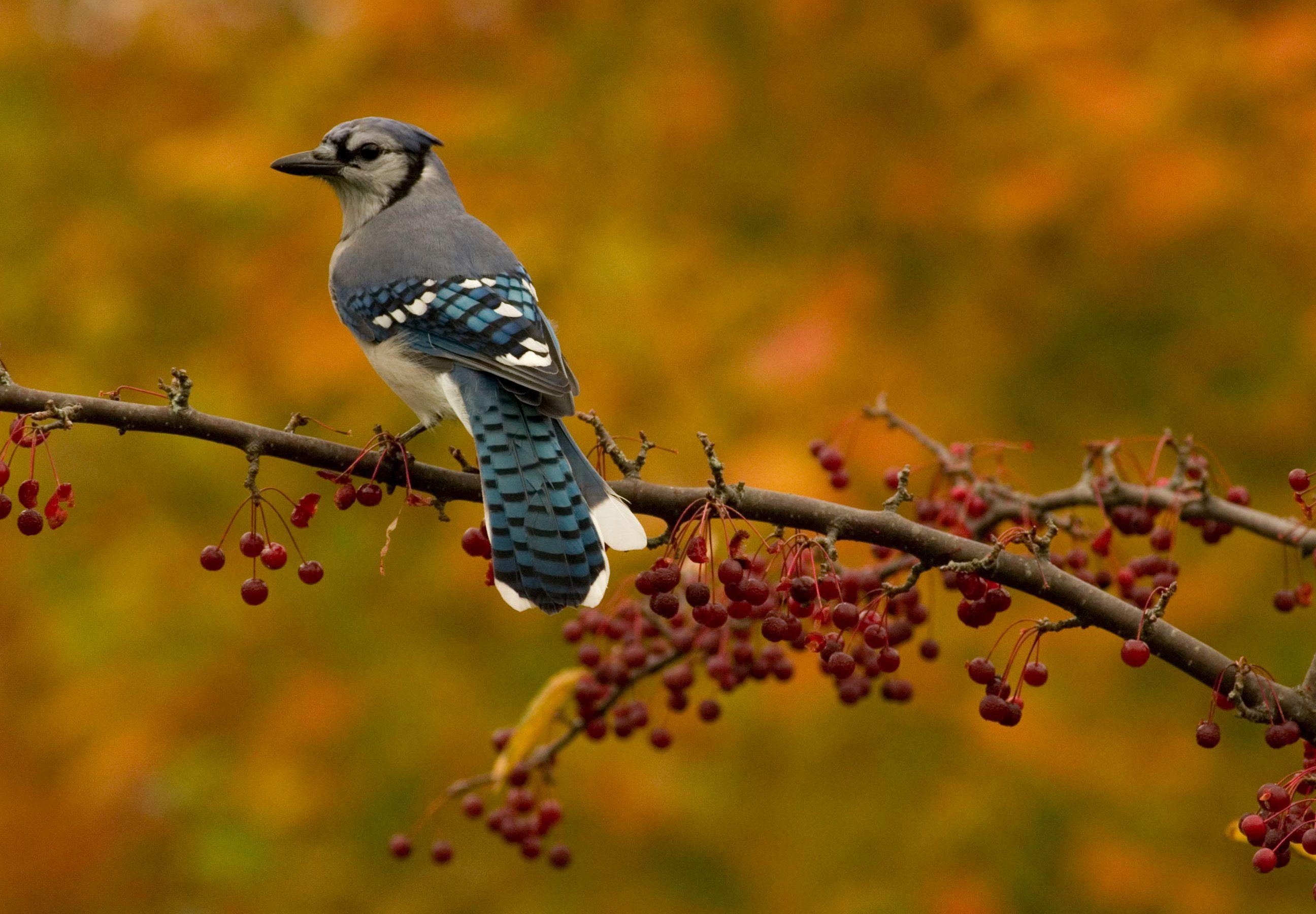-
Feed de notícias
- EXPLORAR
-
Páginas
-
Blogs
-
Fóruns
12 Bird-Friendly Plants to Grow for a Livelier Winter Garden

12 Plants That Will Bring Birds to Your Winter Garden
In the winter, especially when snow blankets the ground, it's challenging for non-migratory birds to find food. Hanging bird feeders and suet cakes out in your garden is one way to help out birds that don't fly south in winter, such as cardinals and juncos. But to do even more for winter wildlife with less effort, include a few of these landscape plants that support wild birds the all-natural way.
Evergreens
Evergreens keep their needles or leaves all year-round, which makes them ideal winter interest plants. Spruces, pines, hemlocks, junipers, and hollies also provide valuable winter shelter for wild birds when other trees are bare. On top of that, many evergreens produce seed-filled cones or fleshy berries that wild birds love to snack on.
Asters
Bob Stefko
Late-blooming asters (Symphyotrichum spp.) are one of the few plants that flower reliably through fall. When aster blooms fade, they leave behind dried seedheads that are irresistible to seed-eating birds, like siskins and goldfinches. To ensure these plants provide maximum benefits to winter birds, leave aster plants standing through winter and only cut the dead stems and flowerheads when the weather warms in spring.
Black-Eyed Susan
Like asters, black-eyed Susans (Rudbeckia spp.) also yields lots of seeds in fall when their flowers dry out. Leaving the spent flowerheads in place through winter can attract a wide variety of seed-eating birds to your garden, but it will also allow your black-eyed Susans to self-sow and produce more free plants for your garden.
Winterberry
Denny Schrock
Winterberry (Ilex verticillata) is a type of holly that drops its leaves in fall. The shrub is native to many areas throughout the eastern United States. When it's bare of leaves, its bright red berries draw the eye, and wild birds, too. The berries can be used for holiday decor or left on the plant to entice fruit-eating birds, such as cedar waxwings.
Ornamental Grasses
Bob Stefko
Many ornamental grasses keep their seedheads through winter, which catch snow and ice beautifully and add interest to winter gardens. The seedheads also provide a valuable food source for seed-eating birds, and animals commonly use dried grasses for shelter and winter nests. For best results, look for grasses that are native to your area, which are generally more cold-hardy and even more attractive to wildlife than non-native species.
Joe Pye Weed
grant webster
Stately Joe Pye weed (Eutrochium purpureum) plants can grow up to 8 feet tall and are difficult to transplant, so you'll want to be choosy about where you grow them. These native plants are highly attractive to birds that feast on their dried flowerheads through winter. What’s more, Joe Pye weed is a top-notch pollinator plant that acts as a magnet for pollinators during summer, and shelters insects within its hollow stems through winter.
Goldenrod
Often grown with asters, goldenrod (Solidago spp.) blooms late in the season and then produces lots of seeds that can persist on the plants through winter. For a natural look, grow goldenrod in groups of 3 to 5 plants in flower beds or plant them en masse for more fall color and to create a mini wildflower meadow that benefits wildlife year-round.
Mountain Ash
Denny Schrock
Also known as rowan trees, mountain ash trees (Sorbus spp.) are small understory trees or shrubs that usually grow between 15 and 30 feet tall. They produce clusters of bright orange berries that serve as food for birds and other wildlife through winter. On their own, mountain ashes make exceptional specimen plants that draw the eye in, but they can also be used as backdrop or foundation plants in roomy flower beds filled with lower-growing perennials, like asters and goldenrod.
Coneflowers
Native coneflowers become magnets for birds when their flowers give way to dried seedheads in fall to winter. Common purple coneflower (Echinacea purpurea), is one of the most well-known varieties that is easy to grow. However, you may also want to try your hand at other types of coneflowers, such as the yellow prairie coneflower or cut-leaf coneflower.
Bee Balm
Bee balms (Monarda spp.) come in a few different varieties, but what they all have in common is a fast growth rate and nectar-packed flowers that are the delight of hummingbirds and other pollinators in summer. In winter, their seeds remain to entice birds when other food sources are scarce.
Viburnums
Viburnums provide a long season of interest with their spring and summer flowers, colorful autumn leaves, and late-season berries that often linger through winter. Northern flickers and other woodpeckers are just some of the birds that are attracted to viburnums. These shrubs benefit pollinators, too.
Viburnums come in a range of sizes to suit different garden spaces. Varieties like witherod (Viburnum nudum), nannyberry (V. lentago), and the American cranberry bush (V. trilobum) are especially popular as specimen plants or foundation shrubs for mixed flower beds.
Native Roses
Not all roses produce big rosehips, but the rose varieties that do are highly attractive to birds in winter. Try out native roses, such as Virginia roses and swamp roses, which produce dainty summer flowers that pollinators love, followed by rosehips in fall. Just make sure to do a bit of research before bringing wild roses home as some varieties, such as multiflora rose and beach rose, are invasive in many areas.


